 Melissa Anderson
Melissa Anderson
Star and planet: Brad Pitt heads to Neptune in a galactic fable.
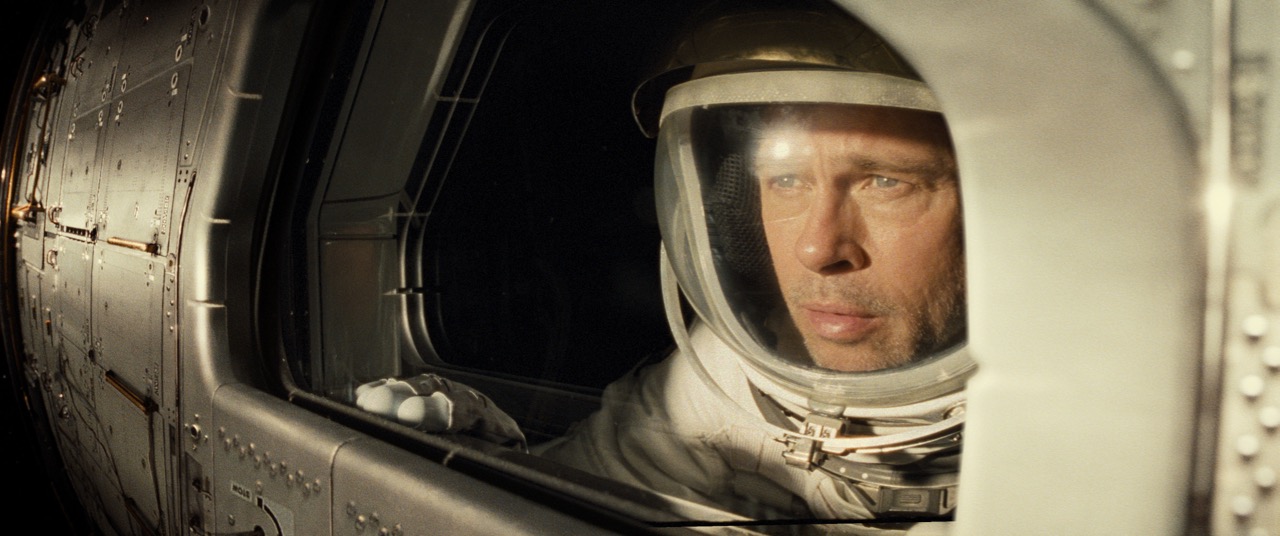
Brad Pitt as Roy McBride in Ad Astra. © Twentieth Century Fox.
Ad Astra, directed by James Gray
• • •
We are in the midst of a zero-gravity craze. In the past year, a crop of movies about outer-space travel, both fiction and fact (or fact-based), have been released. Not all have been successful launches. Some—like the glum Neil Armstrong biopic First Man, directed by Damien Chazelle and featuring Ryan Gosling in the lead role, and the archival-footage-bonanza Apollo 11, a documentary assembled by Todd Douglas Miller—were clear tie-ins to the fiftieth anniversary of the moon landing. Others, such as Claire Denis’s outré High Life, find, in their interstellar milieu, a vast canvas to explore psychosexual fantasias. Set in “the near future,” James Gray’s Ad Astra, the latest entry in this mini-movement, is a galactic fable devoted to dismantling certain myths: about the folly of ambition, about sclerotic codes of masculinity. The film’s Latin title means “to the stars.” But the satisfactions of Gray’s project lie in a special branch of astronomy—not the study of planets, etc., but of the supernova at the center of Ad Astra: Brad Pitt.
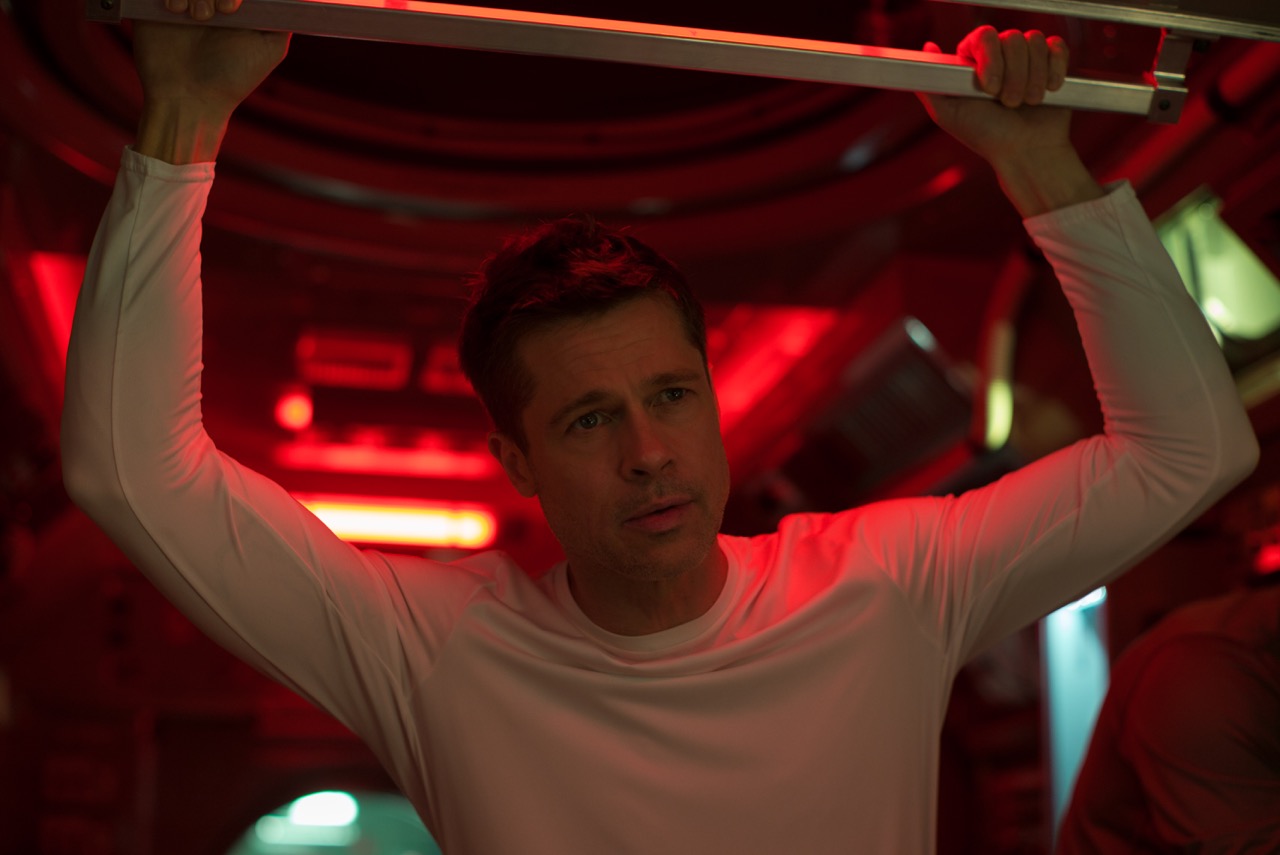
Brad Pitt as Roy McBride in Ad Astra. Photo: Francois Duhamel. © Twentieth Century Fox.
Pitt plays Roy McBride, a rocket man who, in the movie’s opening minutes, assures us via voice-over, a device used throughout Ad Astra, which Gray cowrote with Ethan Gross, that he loves his work: “I always wanted to become an astronaut.” Yet just the slightest hint of doubt can be heard in this putatively unequivocal declaration. Roy—renowned at SpaceCom, his employer, for his imperturbability, evidenced in a heart rate that never rises above eighty beats per minute—seems to be straining to convince himself as much as the audience of his ardor for his profession.
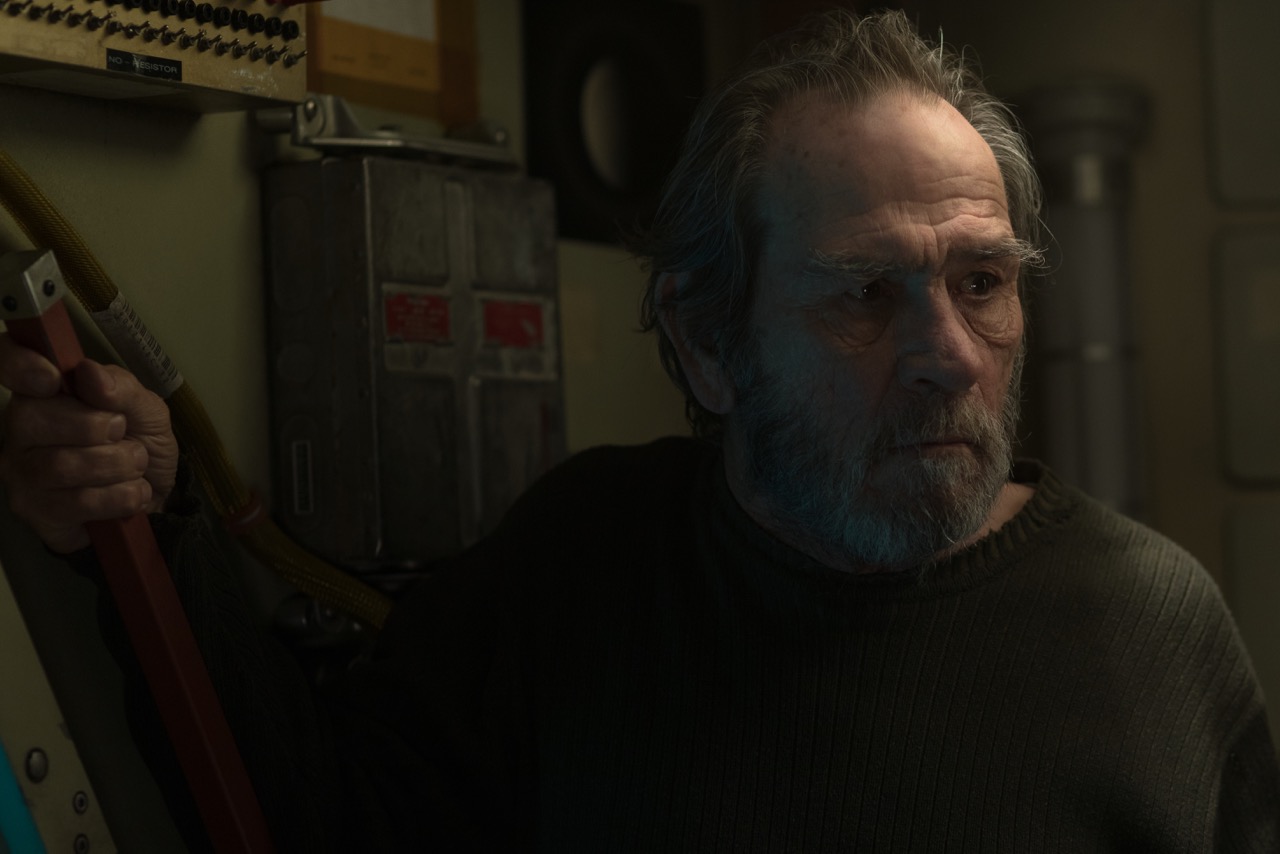
Tommy Lee Jones as Clifford McBride in Ad Astra. Photo: Francois Duhamel. © Twentieth Century Fox.
Roy’s apprehension increases over the course of the film, as he embarks on a mission to Neptune to discover what happened to his father, Clifford (Tommy Lee Jones). McBride père, “the most decorated astronaut in the history of” SpaceCom, disappeared near the eighth planet more than a decade ago; he may be responsible for setting off the cosmic activity that’s been killing earthlings by the thousands.
During his nearly three-billion-mile voyage, Roy makes stops at the moon and Mars, responds to a mayday call, and grapples with discomfiting truths about his dad—and himself. Roy’s voice-over grows more self-castigating: “I’ve let so many people down.” Flashbacks reveal the disappointed face of Eve (Liv Tyler), Roy’s wife, from whom he’s now separated.
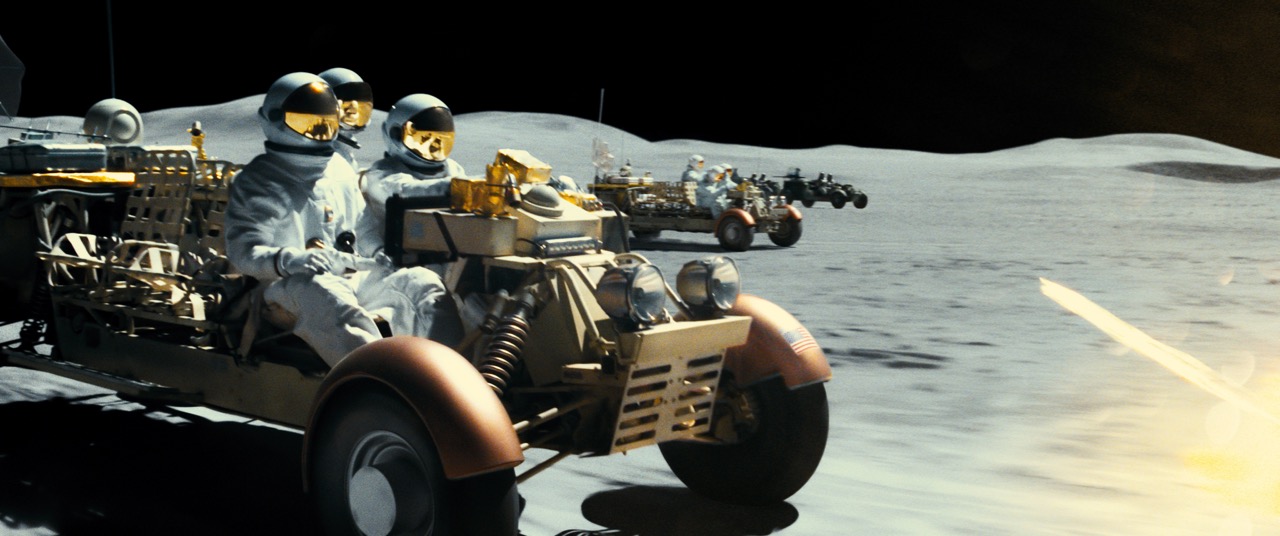
Ad Astra. Photo: Francois Duhamel. © Twentieth Century Fox.
I will confess that I found much of Roy’s first-person narration corny, especially in Ad Astra’s final third, when the introspective celestial voyager determines to break free of the poisonous patriarchal ideology that Clifford has spent his life propagating. I will also admit that any annoyance I experienced over this soliloquizing did little to diminish the pleasure I took in gazing at Pitt, who’s often filmed in extreme close-up. To explain this apparent contradiction, I must cite the cine-sage Boyd McDonald, who wrote about films in the ’80s for gay publications like Christopher Street and who, as this excerpt from his appreciation of the actor Richard Widmark shows, clearly had his priorities in order: “He demonstrates the importance of the movie star over the movie and thus the importance of star reviews over mere movie reviews, with their constant complaints about plot. A movie is the last place in the world to look for literary distinction. But there are hundreds of players, men and women, whose work I find worth watching in any picture they make . . .”
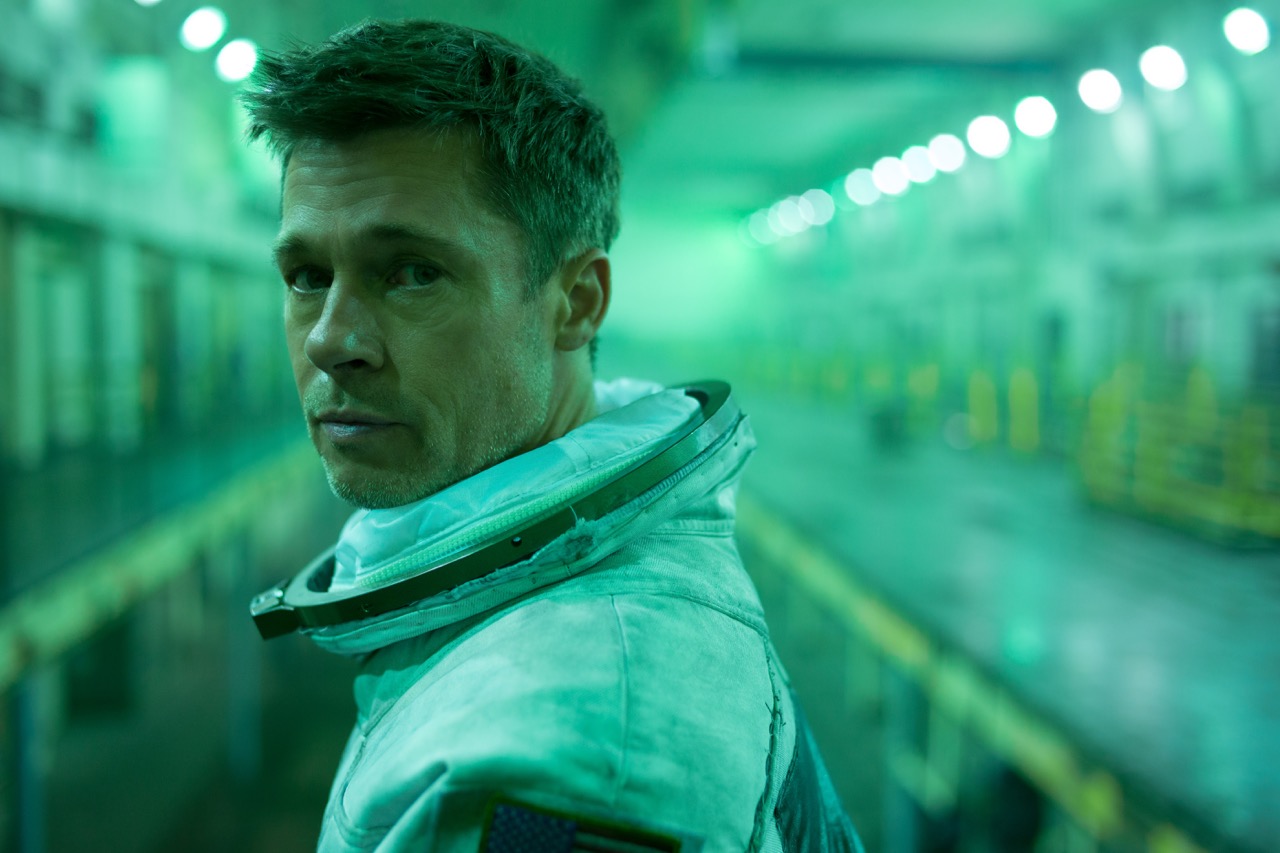
Brad Pitt as Roy McBride in Ad Astra. Photo: Francois Duhamel. © Twentieth Century Fox.
Born in 1963, Pitt, to my mind, is the only A-list male performer over the age of fifty who has been unfailingly charismatic throughout the long arc of his career, magnetism that has only deepened as he has aged. That allure was abundantly displayed this summer in Quentin Tarantino’s Once Upon a Time . . . in Hollywood: as Cliff Booth, the underemployed stuntman Pitt portrays, the actor poignantly combines rakish charm and middle-aged vulnerability. (His antithesis is George Clooney—two years Pitt’s senior and his costar in Ocean’s Eleven, from 2001, and its two sequels—whose debonair detachment has curdled into sour smugness over the decades.)
While Roy’s off-screen narration in Ad Astra can at times verge on the garrulous, he is a man of few words during the on-screen action. His silence shouldn’t be confused with stoicism, though. On his solo mission, tears fill his eyes. Overwhelmed by painful memories—of his father, of his own failings—he crumples in anguish. These unguarded moments are made all the more touching by the shades of sorrow that sweep across Pitt’s face: a beautiful vista of still-boyish handsomeness that bears the signs of senescence—the wrinkles, the pouches under the eyes, the no-longer-drum-taut cheeks—with grace rather than terror.
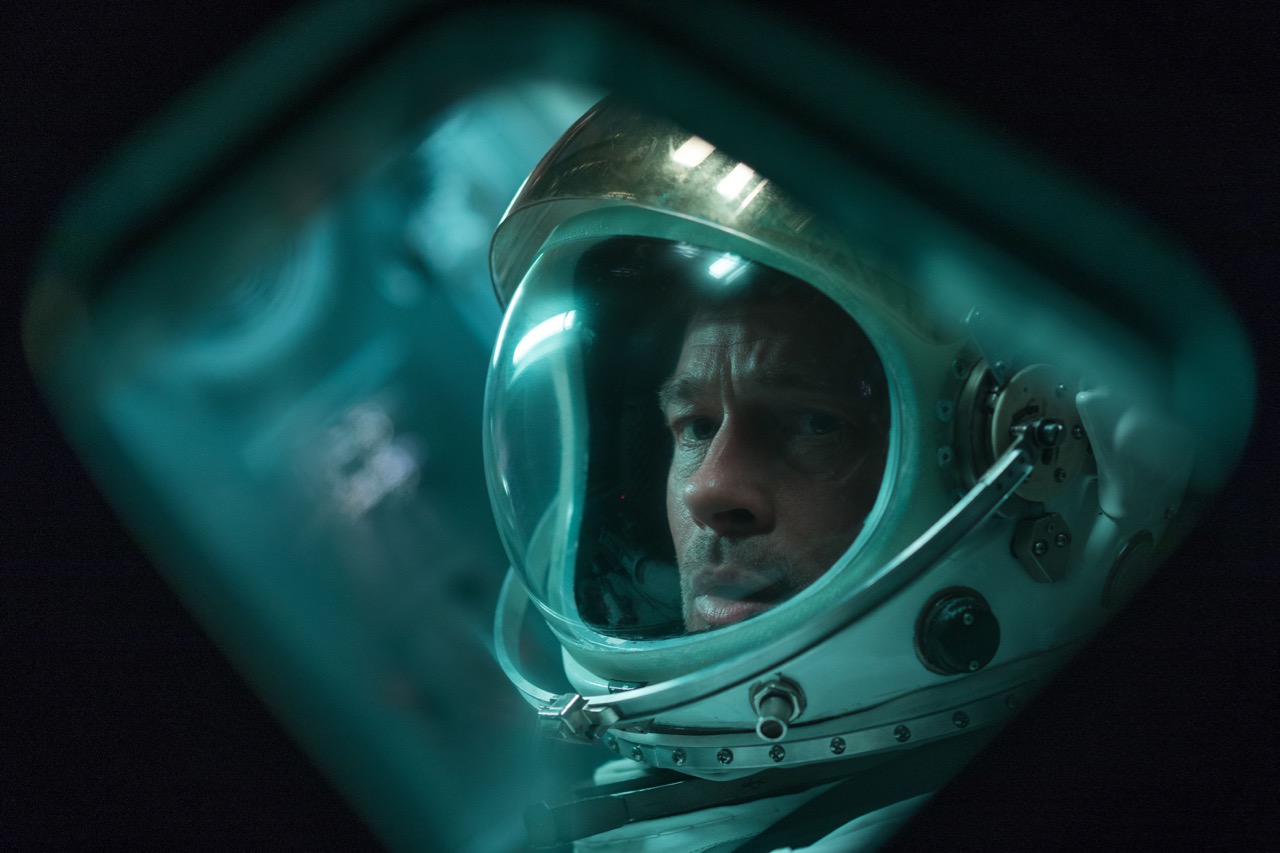
Brad Pitt as Roy McBride in Ad Astra. Photo: Francois Duhamel. © Twentieth Century Fox.
Ad Astra may be a work of science fiction. But it is also a male weepie, a genre to which Gray, who favors emotional extravagance—manifest in his earlier films like the romantic tragedy Two Lovers (2008) and the 1920s period piece The Immigrant (2013)—is especially well-suited. Gray is an unabashed melodramatist, drawn to affective excess, prone to recycling the hoariest of clichés in his scripts; Ad Astra’s voice-over reaches its nadir when Roy muses, “In the end, the son suffers the sins of the father.” Yet crucially Gray is not a shameless sentimentalist, a fitting descriptor for a filmmaker like Alfonso Cuarón, whose space opera Gravity (2013) revolves around a protagonist larded with a backstory involving a dead daughter; Roy and Eve are, thankfully, childless.

Ad Astra. Photo: Francois Duhamel. © Twentieth Century Fox.
Although Ad Astra is occasionally vexing to listen to, it is always astonishing to look at. Gray and his cinematographer Hoyte van Hoytema have created a work of dazzling spectacle; indelible tableaux include Roy descending (and later falling from) a ladder of unfathomable height and a hypnotic walk he takes down a corridor while on a base at Mars—a slo-mo amble seemingly light-directed by James Turrell. The dread-drenched, inconceivable enormity of the galaxy recalls that found in Stanley Kubrick’s 2001, a masterwork of anti-psychology to which Gray’s movie serves as temperamental opposite. And yet for all of Ad Astra’s visual acumen, the technical virtuosity remains subordinate to the movie’s greatest special effect: the maturing, tear-dampened visage of an actor who emits a force field more powerful than earth-destroying cosmic rays.
Melissa Anderson is the film editor of 4Columns.